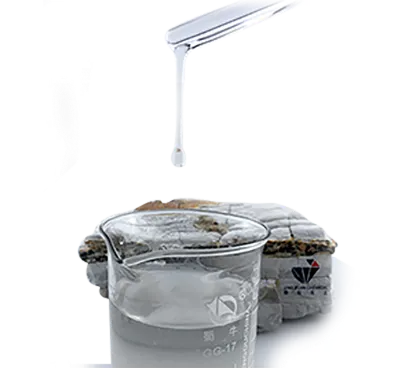
Nov . 11, 2024 17:45 Back to list
hydroxyethyl cellulose thickener
Hydroxyethyl Cellulose Thickener An Integral Ingredient in Various Industries
Hydroxyethyl cellulose (HEC) is a water-soluble polymer derived from cellulose, a natural biopolymer found in the cell walls of plants. This versatile compound serves as a thickener, binder, and film-forming agent, making it a valuable ingredient in a multitude of industries including healthcare, cosmetics, food, and construction. Its unique properties provide numerous benefits that cater to the specific needs of these fields.
One of the primary advantages of HEC is its ability to thicken aqueous solutions. When added to water, HEC forms a gel-like consistency, which enhances the texture and viscosity of products. In the cosmetics industry, for example, this property is utilized in lotions, creams, and shampoos to improve their spreadability and stability. Consumers often prefer products with a pleasing texture, and HEC contributes to this aspect by preventing separation of ingredients and maintaining a uniform consistency.
Hydroxyethyl Cellulose Thickener An Integral Ingredient in Various Industries
The healthcare sector has also recognized the benefits of hydroxyethyl cellulose. HEC is frequently utilized in pharmaceutical formulations, especially in topical applications due to its safety and compatibility with skin. It acts as a binding agent in tablets, helping to achieve the desired consistency and release properties. In wound care, HEC is used in dressings and gels to create a moist environment that promotes healing while providing a protective barrier against external contaminants.
hydroxyethyl cellulose thickener

Moreover, HEC finds extensive applications in the construction industry, particularly as an additive in cement, plaster, and other building materials. Its water-retaining properties lend workability and enhance the adhesion of plaster and tile adhesives. This not only improves the performance of construction materials but also assists in their application by extending the working time, allowing builders to work at a more leisurely pace without compromising on quality.
The versatility of hydroxyethyl cellulose can also be attributed to its customizable properties. By modifying the degree of substitution of the hydroxyl groups on the cellulose backbone, manufacturers can tailor HEC's viscosity, solubility, and other characteristics to suit specific applications. This adaptability makes it a popular choice for formulators who aim to meet the unique demands of various industries.
Furthermore, HEC is considered environmentally friendly due to its biodegradable nature. As sustainability becomes increasingly important across sectors, using natural and renewable ingredients like HEC aligns with eco-friendly practices, allowing companies to appeal to a growing market of environmentally conscious consumers.
In conclusion, hydroxyethyl cellulose thickener is a multifunctional ingredient that plays a significant role in a variety of industries. Whether it's enhancing the texture of beauty products, stabilizing food formulations, or improving the performance of construction materials, HEC's versatility and effectiveness make it an invaluable asset. As industries continue to innovate and adapt to consumer demands, the importance of hydroxyethyl cellulose is likely to grow, helping to pave the way for new applications and advancements in formulation technology.
-
Versatile Hpmc Uses in Different Industries
NewsJun.19,2025
-
Redispersible Powder's Role in Enhancing Durability of Construction Products
NewsJun.19,2025
-
Hydroxyethyl Cellulose Applications Driving Green Industrial Processes
NewsJun.19,2025
-
Exploring Different Redispersible Polymer Powder
NewsJun.19,2025
-
Choosing the Right Mortar Bonding Agent
NewsJun.19,2025
-
Applications and Significance of China Hpmc in Modern Industries
NewsJun.19,2025







